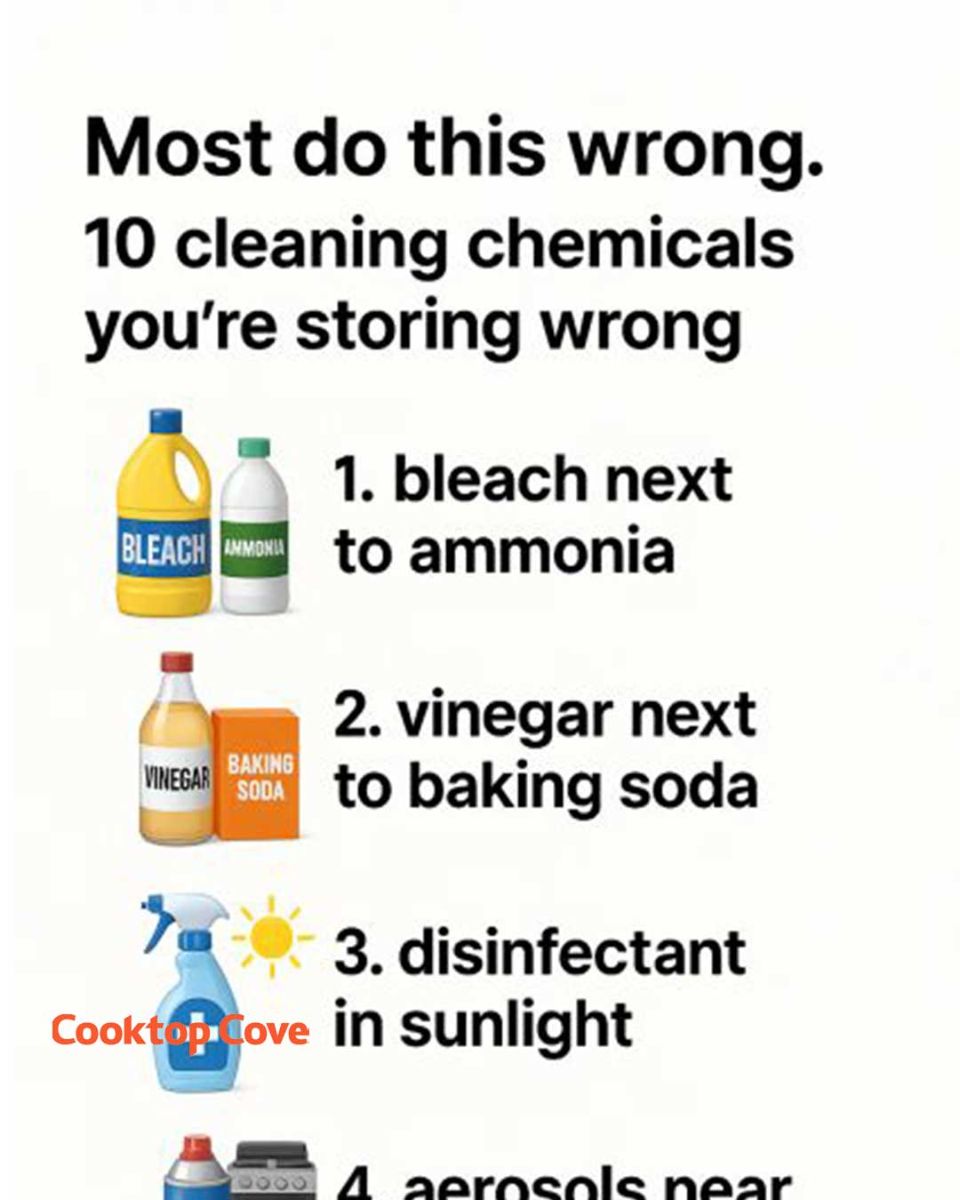In today’s fast-paced world, cleaning products are essential in maintaining a hygienic environment both at home and in the workplace. However, improper storage of these chemicals can not only reduce their effectiveness but also pose serious safety risks. Many people are unaware that certain common household cleaning products should be stored with specific considerations to ensure their safety and efficacy.
Understanding how to properly store cleaning chemicals is crucial for preventing accidents and maintaining a safe home environment. This article will explore ten common cleaning chemicals that are often stored incorrectly and provide detailed guidance on how to store them properly.
1. Bleach and Ammonia: A Dangerous Duo
Bleach and ammonia are powerful cleaning agents on their own, but when combined, they produce toxic chloramine vapors that can cause respiratory distress and other health issues. It’s crucial to store bleach and ammonia separately to prevent accidental mixing. Store bleach in a cool, dry place away from any ammonia-based products. Make sure to keep them in their original containers with clear labels. This will help avoid any confusion and accidental mixing. If you use both products for cleaning different areas, ensure that you clean up thoroughly between applications and never use them simultaneously in the same space.
2. Vinegar and Baking Soda: A Fizzing Mistake
Vinegar and baking soda are popular natural cleaning agents known for their effectiveness in tackling tough stains and odors. However, when stored together or mixed in the wrong proportions, they can create a fizzy reaction that can lead to spills or even cause closed containers to burst due to pressure build-up. It’s best to store vinegar in a cool, dark place and baking soda in an airtight container separately. When using them together for cleaning purposes, mix them in small, controlled amounts, typically no more than a quarter cup of each at a time, in an open container to allow gases to escape safely.
3. Disinfectants in Sunlight: Losing Potency
Many disinfectants, including alcohol-based solutions, lose their potency when exposed to direct sunlight or high temperatures. The ultraviolet rays break down the active ingredients, rendering them less effective over time. To prevent this, store disinfectants in a cool, dark cabinet or drawer, away from windows and heat sources. Ensure the containers are tightly sealed to prevent evaporation of alcohol and other volatile components. Regularly check the expiration date on the disinfectant bottles, as their effectiveness diminishes over time.
4. Aerosols Near the Stove: A Flammable Hazard
Aerosol cleaning products, such as oven cleaners and air fresheners, often contain flammable propellants. Storing them near heat sources like stoves or ovens can pose a significant fire risk. Always store aerosol cans in a cool, dry place, away from any potential ignition sources. The ideal storage temperature is below 120°F (49°C) to prevent the cans from overheating and potentially exploding. Be cautious when using these products in the kitchen, ensuring proper ventilation and keeping them away from open flames.
5. Storing Drain Cleaners: Out of Reach and Away from Heat
Drain cleaners are typically composed of highly corrosive chemicals such as lye or sulfuric acid, which can cause severe injuries if mishandled. These products should be stored in a secure cabinet, out of reach of children and pets. Moreover, they should be kept away from heat sources, as high temperatures can cause the chemicals to become volatile. Ensure the containers are tightly sealed to prevent leaks, and store them upright to avoid accidental spills.

Most do this wrong. 10 cleaning chemicals you’re storing wrong
Pages: 1 2
